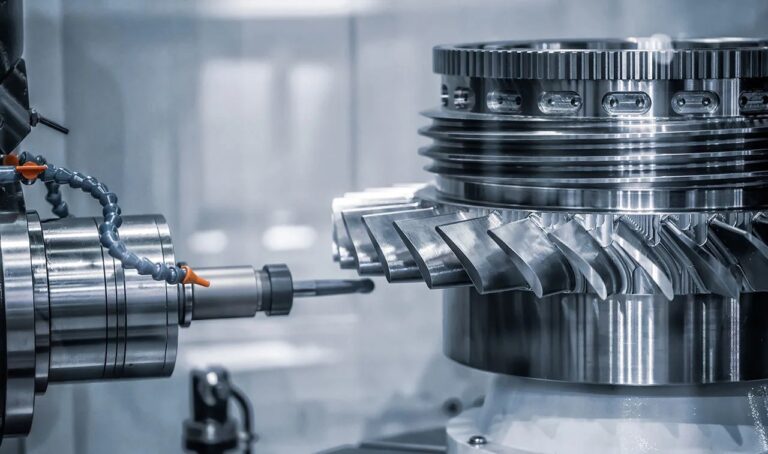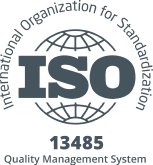Magnetic Separators – An In-Depth Overview
Introduction
Magnetic separators are crucial devices used in various industries to remove ferrous contaminants from different substances. These separators play a key role in ensuring the purity of products, enhancing the efficiency of industrial processes, and protecting machinery from potential damage caused by metal impurities.
Types of Magnetic Separators
Magnetic separators come in several types, each designed to serve specific applications and requirements. The primary types include:
1. Drum Magnetic Separators
Drum magnetic separators are among the most common types, used primarily in the mining, recycling, and food industries. These separators consist of a rotating drum with magnetic elements attached to its surface. As the material passes over the drum, ferrous particles are attracted to the magnetic surface and separated from the non-magnetic material.
2. Overband Magnetic Separators
Overband magnetic separators are typically used to remove metal contaminants from conveyor belts. These separators are installed above the conveyor belt, and as the belt carries the material, the magnetic separator attracts and removes ferrous particles, preventing them from contaminating the final product.
3. Plate Magnetic Separators
Plate magnetic separators are utilized in various industries, including food processing, ceramics, and chemicals. These separators consist of a flat magnetic plate that captures ferrous particles as the material passes over or beneath it. They are particularly effective in removing tramp iron from free-flowing materials.
4. Grate Magnetic Separators
Grate magnetic separators are designed for applications where the material flows through a series of magnetic grids. These separators are commonly used in the food and pharmaceutical industries to ensure the highest levels of product purity. The magnetic grids capture and retain ferrous particles, preventing them from contaminating the final product.
Applications of Magnetic Separators
Magnetic separators are employed in a wide range of industries, each with unique requirements and challenges. Some of the key applications include:
1. Mining and Mineral Processing
In the mining industry, magnetic separators are used to separate valuable minerals from gangue materials. They play a crucial role in the beneficiation of iron ores, ensuring that the final product is of high purity and free from impurities.
2. Recycling
Magnetic separators are essential in the recycling industry, where they help recover ferrous metals from various waste streams. By removing metal contaminants from plastic, glass, and other materials, these separators enhance the efficiency of recycling processes and contribute to environmental sustainability.
3. Food and Beverage
In the food and beverage industry, magnetic separators are used to ensure the safety and quality of products. They remove metal contaminants from raw materials, ingredients, and finished products, preventing potential health hazards and product recalls.
4. Chemical and Pharmaceutical
The chemical and pharmaceutical industries rely on magnetic separators to maintain product purity and prevent contamination. These separators are used to remove tramp iron and other ferrous particles from powders, granules, and liquids, ensuring that the final products meet stringent quality standards.
5. Ceramics and Glass
In the ceramics and glass industries, magnetic separators are used to remove iron and other ferrous contaminants from raw materials. This helps improve the quality and appearance of the final products, reducing defects and enhancing their market value.
Advantages of Magnetic Separators
Magnetic separators offer numerous advantages that make them indispensable in various industries. Some of the key benefits include:
1. High Efficiency
Magnetic separators are highly efficient in removing ferrous contaminants, ensuring that the final products are of high purity. This enhances the overall quality of the products and reduces the risk of defects and recalls.
2. Protecting Machinery
By removing metal contaminants, magnetic separators help protect machinery from damage and wear. This extends the lifespan of equipment and reduces maintenance costs, contributing to overall operational efficiency.
3. Versatility
Magnetic separators are versatile and can be customized to suit specific applications and requirements. This makes them suitable for a wide range of industries, from mining and recycling to food processing and pharmaceuticals.
4. Environmental Sustainability
Magnetic separators contribute to environmental sustainability by facilitating the recovery and recycling of ferrous metals. This reduces the need for virgin materials, conserves natural resources, and minimizes waste.
Challenges and Considerations
While magnetic separators offer numerous benefits, there are several challenges and considerations to keep in mind:
1. Proper Maintenance
Regular maintenance is essential to ensure the optimal performance of magnetic separators. This includes cleaning the magnetic surfaces, inspecting for wear and damage, and replacing any worn or damaged components.
2. Selection of the Right Separator
Selecting the right type of magnetic separator for a specific application is crucial. Factors to consider include the nature of the material, the size and type of contaminants, and the required level of separation.
3. Cost
The cost of magnetic separators can vary significantly depending on the type, size, and complexity of the separator. It’s important to balance the initial investment with the long-term benefits and potential cost savings.
Conclusion
Magnetic separators are indispensable tools in various industries, ensuring product purity, protecting machinery, and contributing to environmental sustainability. By understanding the different types of magnetic separators, their applications, and the benefits they offer, industries can make informed decisions and optimize their processes for maximum efficiency. As technology continues to advance, magnetic separators will play an increasingly important role in ensuring the quality and safety of products worldwide.








